What is a Living Earth Community?: Books
Further resources, if available, can be found in our full bibliography.
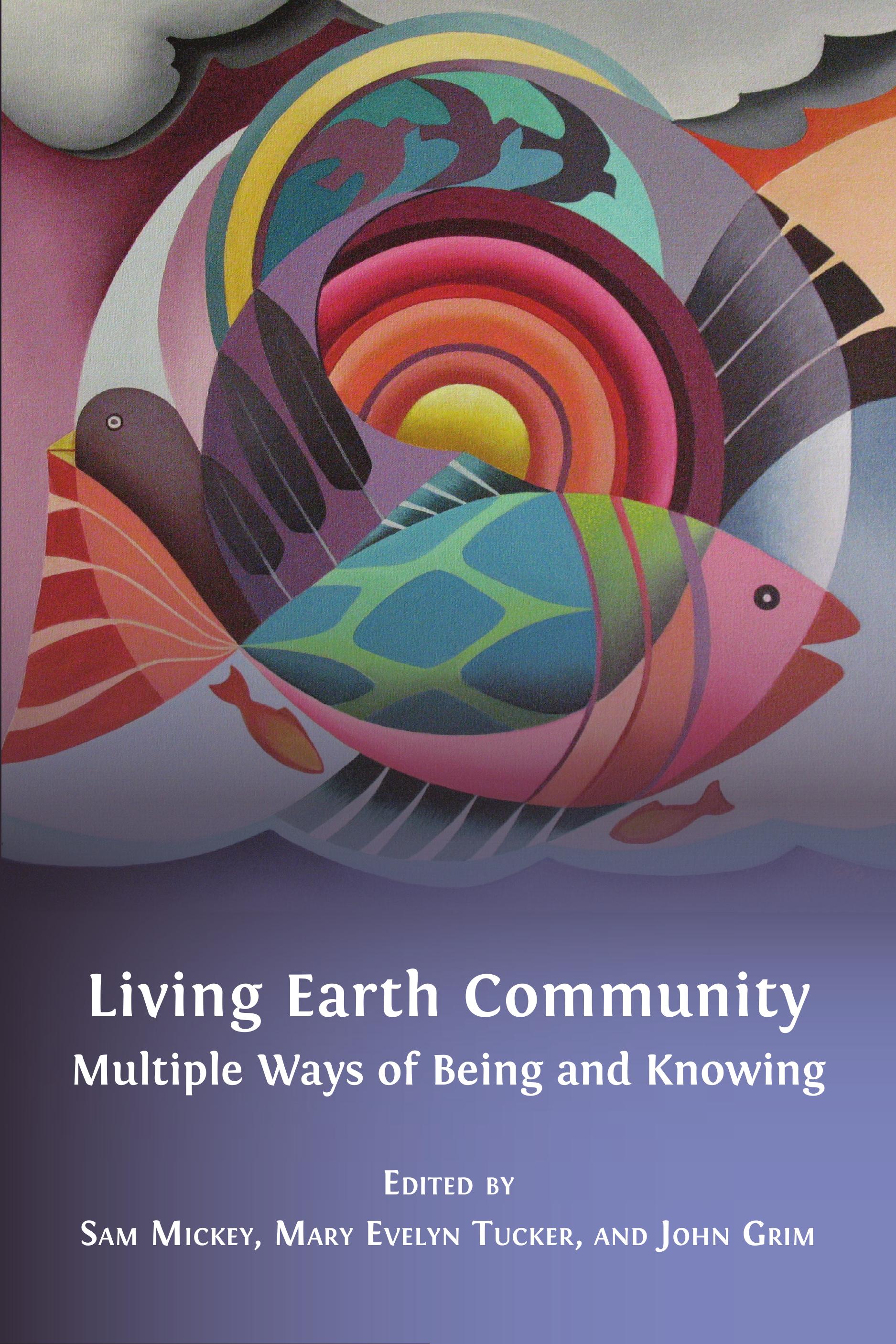
Living Earth Community: Multiple Ways of Being and Knowing
Sam Mickey, Mary Evelyn Tucker, John Grim
Open Book Publishers
2020
Living Earth Community: Multiple Ways of Being and Knowing is a celebration of the diversity of ways in which humans can relate to the world around them, and an invitation to its readers to partake in planetary coexistence. Innovative, informative, and highly accessible, this interdisciplinary anthology of essays brings together scholars, writers and educators across the sciences and humanities, in a collaborative effort to illuminate the different ways of being in the world and the different kinds of knowledge they entail–from the ecological knowledge of Indigenous communities, to the scientific knowledge of a biologist and the embodied knowledge communicated through storytelling.
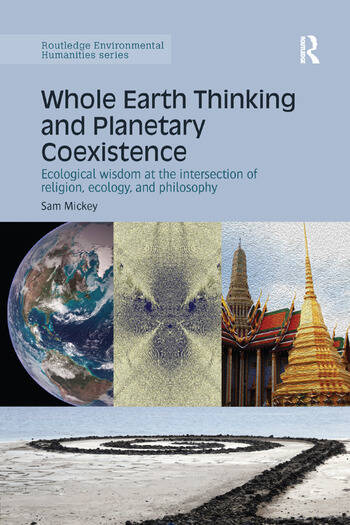
This book focuses on newly emerging approaches to ecology that cross the disciplinary boundaries of sciences and humanities with the aim of responding to the challenges facing the living Earth community during this time of unprecedented interconnectedness. It introduces concepts that draw out a creative contrast between religious and secular approaches to the integration of sciences and humanities, with religious approaches represented by the geologian Thomas Berry and the whole Earth thinking of Stephanie Kaza and Gary Snyder, and the more secular approaches represented by the geophilosophy of poststructuralist theorists Gilles Deleuze and Félix Guattari.
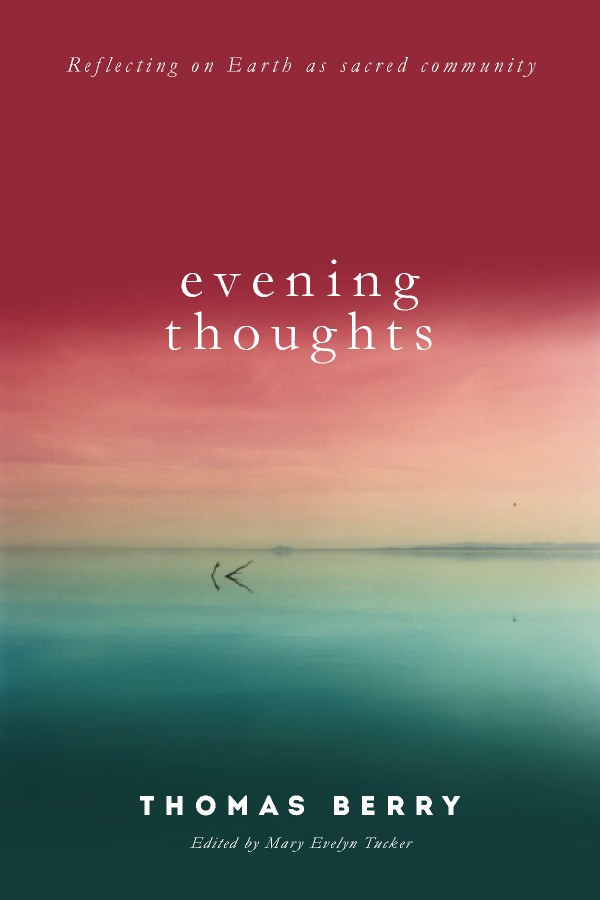
Evening Thoughts: Reflecting on Earth as Sacred Community
Thomas Berry
Mary Evelyn Tucker
Counterpoint Press
2015
Among the contemporary voices for the Earth, none resonates like that of noted cultural historian Thomas Berry. His teaching and writings have inspired a generation’s thinking about humankind’s place in the Earth Community and the universe, engendering widespread critical acclaim and a documentary film on his life and work. This collection of essays, from various years and occasions, expands and deepens ideas articulated in his earlier writings and also breaks new ground. Berry opens our eyes to the full dimensions of the ecological crisis, framing it as a crisis of spiritual vision. Applying his formidable erudition in cultural history, science, and comparative religions, he forges a compelling narrative of creation and communion that reconciles modern evolutionary thinking and traditional religious insights concerning our integral role in Earth’s society. While sounding an urgent alarm at our current dilemma, Berry inspires us to reclaim our role as the consciousness of the universe and thereby begin to create a true partnership with the Earth Community. With Evening Thoughts, this wise elder has lit another beacon to lead us home. Originally published in 2006 from Sierra Club Books.
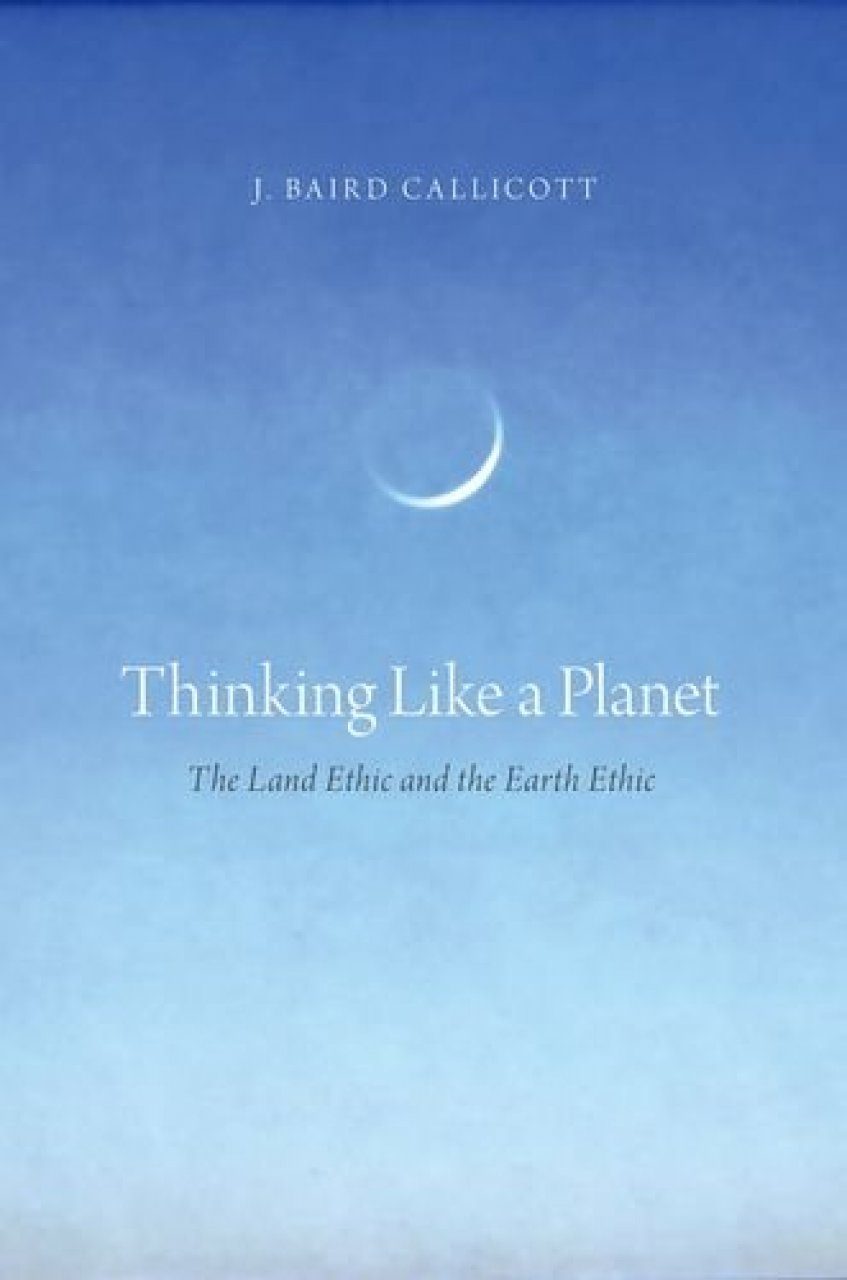
Bringing together ecology, evolutionary moral psychology, and environmental ethics, J. Baird Callicott counters the narrative of blame and despair that prevails in contemporary discussions of climate ethics and offers a fresh, more optimistic approach. Whereas other environmental ethicists limit themselves to what Callicott calls Rational Individualism in discussing the problem of climate change only to conclude that, essentially, there is little hope that anything will be done in the face of its “perfect moral storm” (in Stephen Gardiner’s words), Callicott refuses to accept this view. Instead, he encourages people to look to the Earth itself, and consider the crisis on grander spatial and temporal scales, as they have failed to in the past. Callicott supports this theory by exploring and enhancing Aldo Leopold’s faint sketch of an Earth ethic in “Some Fundamentals of Conservation in the Southwest,” a seldom-studied text from the early days of environmental ethics that was written in 1923 but not published until 1979 after the environmental movement gathered strength.
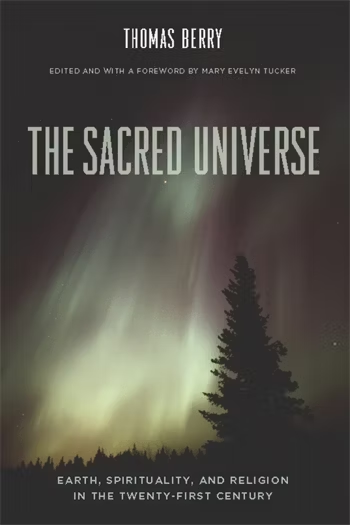
The Sacred Universe: Earth, Spirituality, and Religion in the Twenty-First Century
Thomas Berry
Mary Evelyn Tucker
Columbia University Press
2009
A leading scholar, cultural historian, and Catholic priest who spent more than fifty years writing about humans engagement with the Earth, Thomas Berry possessed prophetic insight into the rampant destruction of ecosystems and the extinction of species. In this book he makes a persuasive case for an interreligious dialogue that can better confront the environmental problems of the twenty-first century. These erudite and keenly sympathetic essays represent Berry’s best work, covering such issues as human beings’ modern alienation from nature and the possibilities of future, regenerative forms of religious experience. Asking that readers create a new story of the universe and the emergence of the Earth within it, Berry resituates the human spirit within a sacred totality.
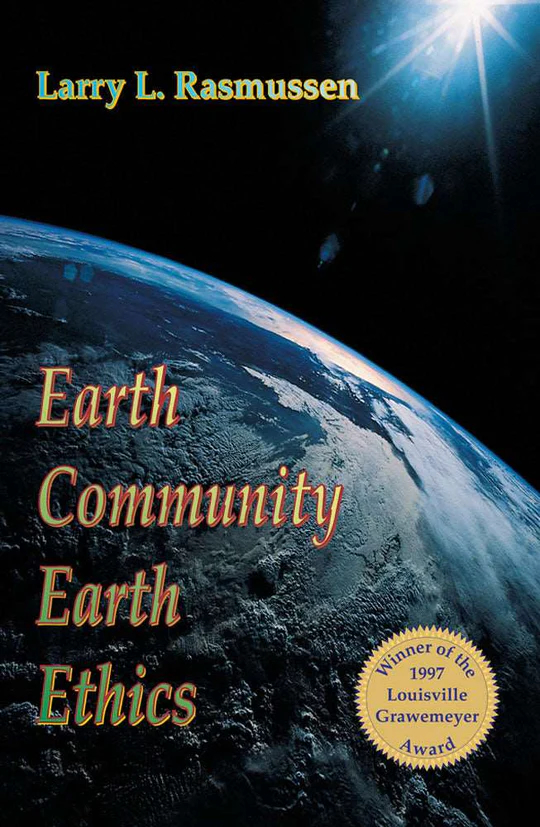
This acclaimed book provides a comprehensive approach to issues of social cohesion and ecological concern, synthesizing insights from religion, ethics, and environmental science in a single vision for creating a sustainable community of the Earth. With environmental ethics as its primary focus, Larry Rasmussen brings together insights from diverse sources on the state of the environment–and what can be done, now, to halt the degradation of life. Rasmussen first scans the global situation and the threats to life posed by the modern world. Next, he turns to the realms of religious faith and human symbolism, gleaning from them the resources for a “conversion to Earth” needed for global survival. Finally, Rasmussen offers a constructive ethic, a program of “Earth Action” that can shape a global movement toward sustainable community. For all those concerned with the environment, religion, and society, Earth Community, Earth Ethics provides a deeply nuanced and brilliantly illuminating vision of where humans currently are, and where they must go from here.
Photo Credit: Yoho National Park, Field, Canada; Hendrik Cornelissen/Unsplash